All 15 Final Fantasy games, ranked best to worst
We ranked every mainline Final Fantasy game, from the NES original to FFXV
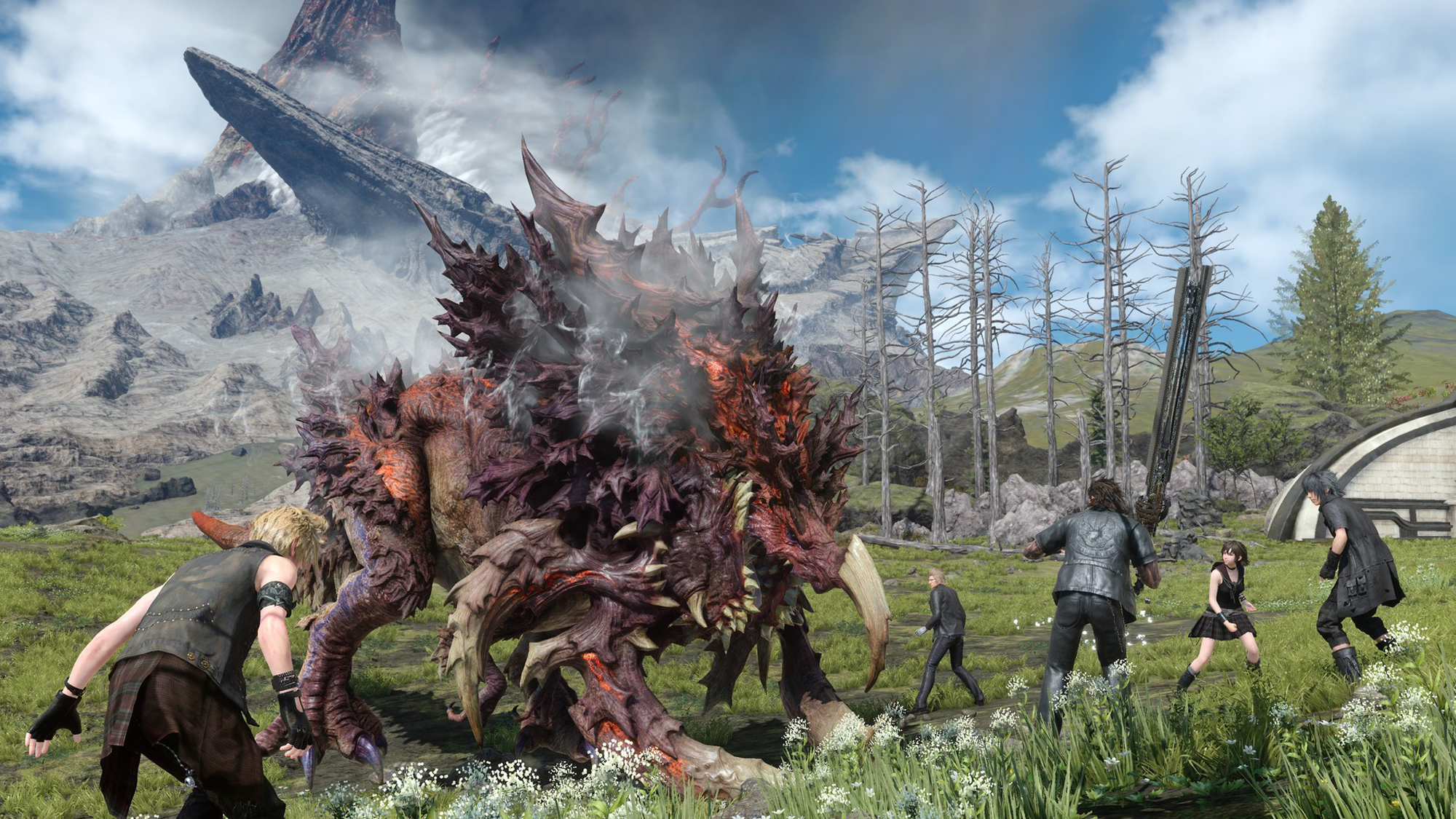
The Final Fantasy series has been around since 1987, and in that time, it’s become one of the cornerstones of the Japanese role-playing game (JRPG) genre. Each Final Fantasy game features demanding combat, memorable characters and an ambitious storyline, and each one has introduced a handful of novel new gameplay mechanics.
What’s even more interesting about the Final Fantasy series is that every entry is someone’s favorite. While some entries are more universally beloved than others, there is no “bad” mainline Final Fantasy game. Each one of these titles tried something interesting, and each one of them succeeded, at least on some level. The Tom’s Guide staff put our heads together and came up with a list of all 15 Final Fantasy games, ranked best to worst — although the “worst” title here is still pretty good, by general gaming standards.
Just be aware that we’re dealing only with the 15 mainline Final Fantasy installments, not the myriad spinoffs and sequels. That would be a much, much longer story. Read on to find the best Final Fantasy games, the worst Final Fantasy games, and everything in-between.
Final Fantasy IX
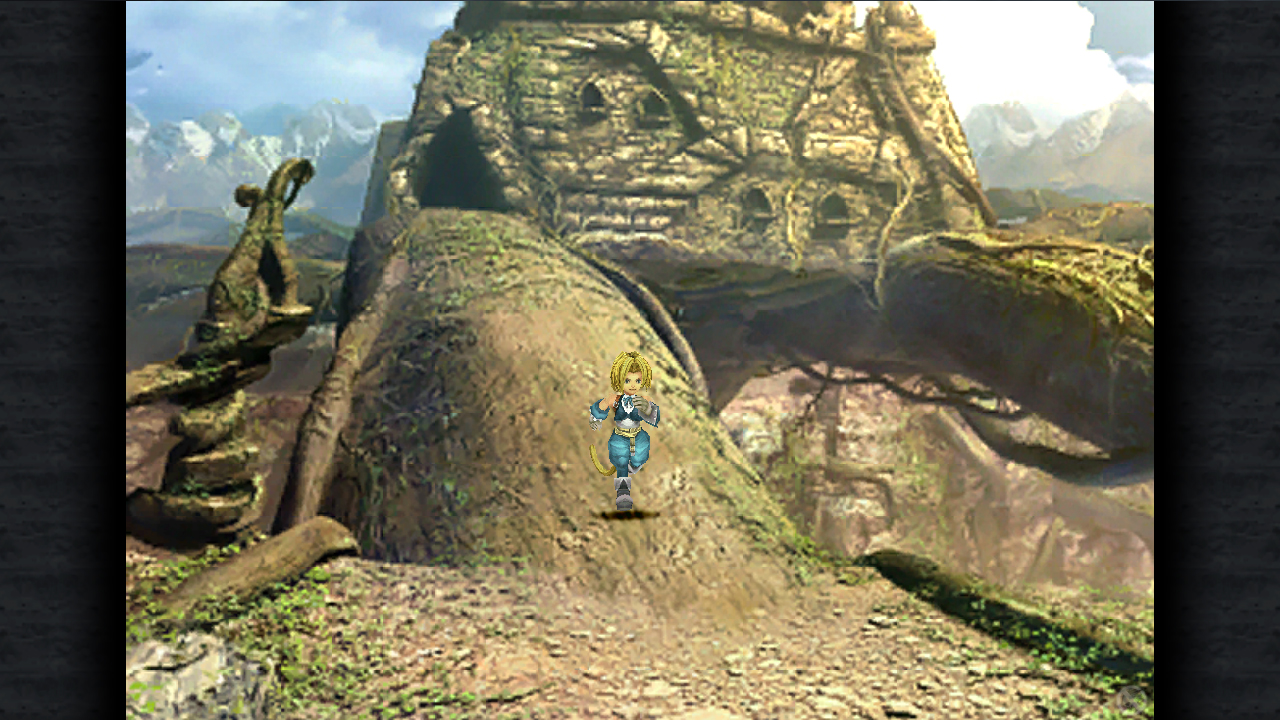
It’s hard to pick a “best” Final Fantasy game, since each one has a unique set of pros and cons. However, if we were to pick the game that “feels” the most like Final Fantasy, it has to be Final Fantasy IX.
The game starts off as a charming high fantasy adventure, in a world full of towering castles, roguish heroes and wondrous airships. You play as Zidane, a plucky thief, who reluctantly teams up with the sheltered Princess Garnet, a dour knight named Steiner, and a wide-eyed young magician named Vivi. Together, they explore the gorgeous world of Gaia and confront a villain whose motivations are much more understandable than they’d like to admit.
With a well-told, heartfelt story and polished, traditional gameplay, FFIX represents the series at its best.
Final Fantasy IV
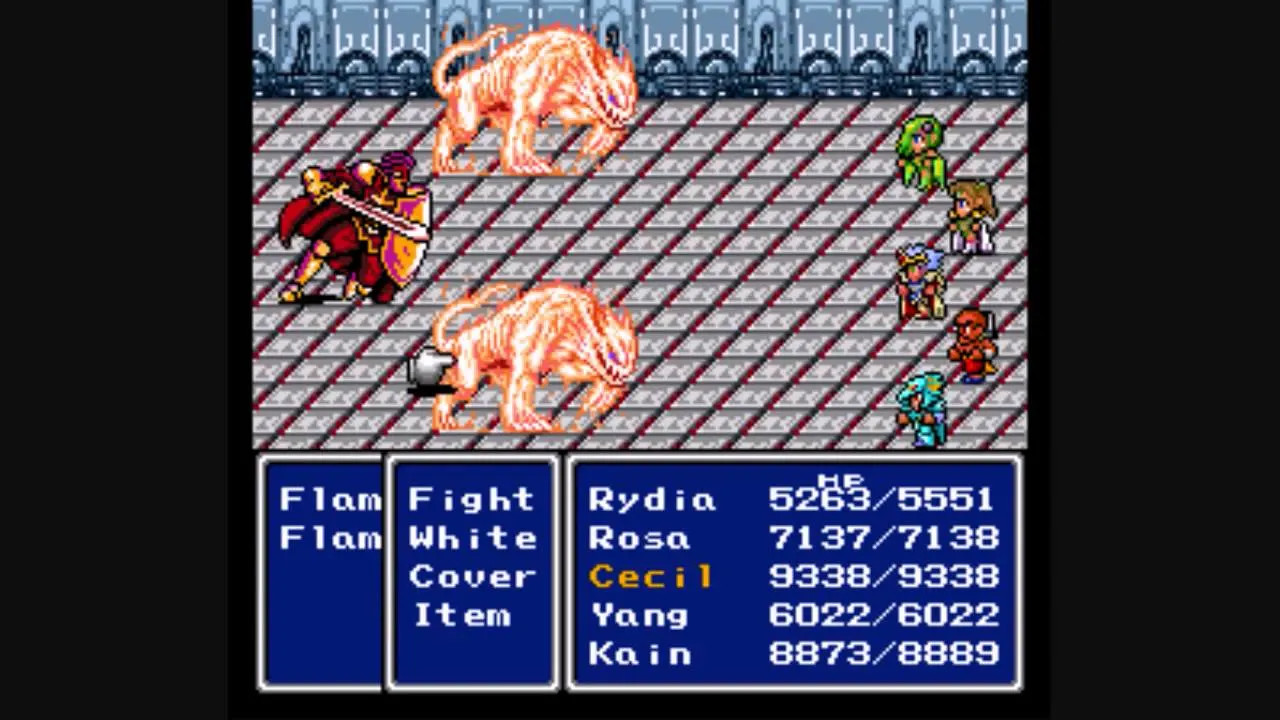
Final Fantasy IV is arguably the first entry to contain almost all the hallmarks the series is known for. As the first game on Nintendo’s Super Famicom (Super Nintendo), it featured graphics and music that the Nintendo Entertainment System wasn’t capable of producing. It also featured a memorable story with gripping characters, which is something that’s now expected from every Final Fantasy game.
Sign up to get the BEST of Tom's Guide direct to your inbox.
Get instant access to breaking news, the hottest reviews, great deals and helpful tips.
The fact that this entry has received so many different remakes — both of the 2D and 3D variety — speaks to its longevity. It is one of the finest JRPGs you could ever play.
Final Fantasy XIV
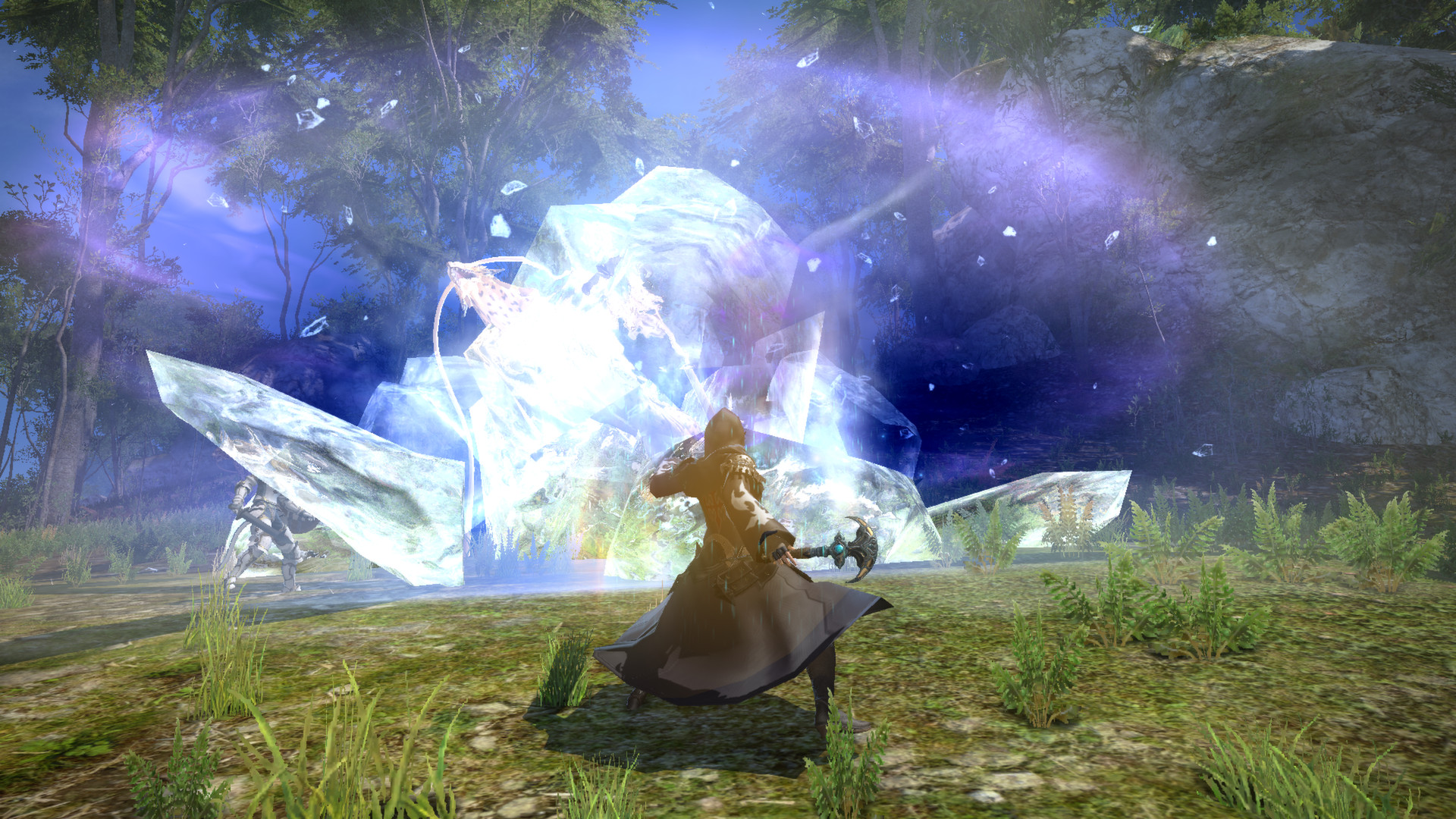
Final Fantasy XIV is one of the most unusual games in the series, as it’s a massively multiplayer online game rather than a single-player adventure. However, once you get into the game, you’ll find it has all the traditional trappings you’d expect from a Final Fantasy adventure, from its extensive Job system, to its charismatic villains, to its crystal-laden story.
While the story in the base game, A Realm Reborn, is a bit predictable, things heat up in the first expansion, Heavensward, and just get more intense after that.
FFXIV is a pleasure to play, either solo or with friends, thanks to its fast-paced combat and myriad gameplay options. You could follow the main story — or you could decorate a house, play in a card game tournament, enter a fashion show and more.
Final Fantasy VII
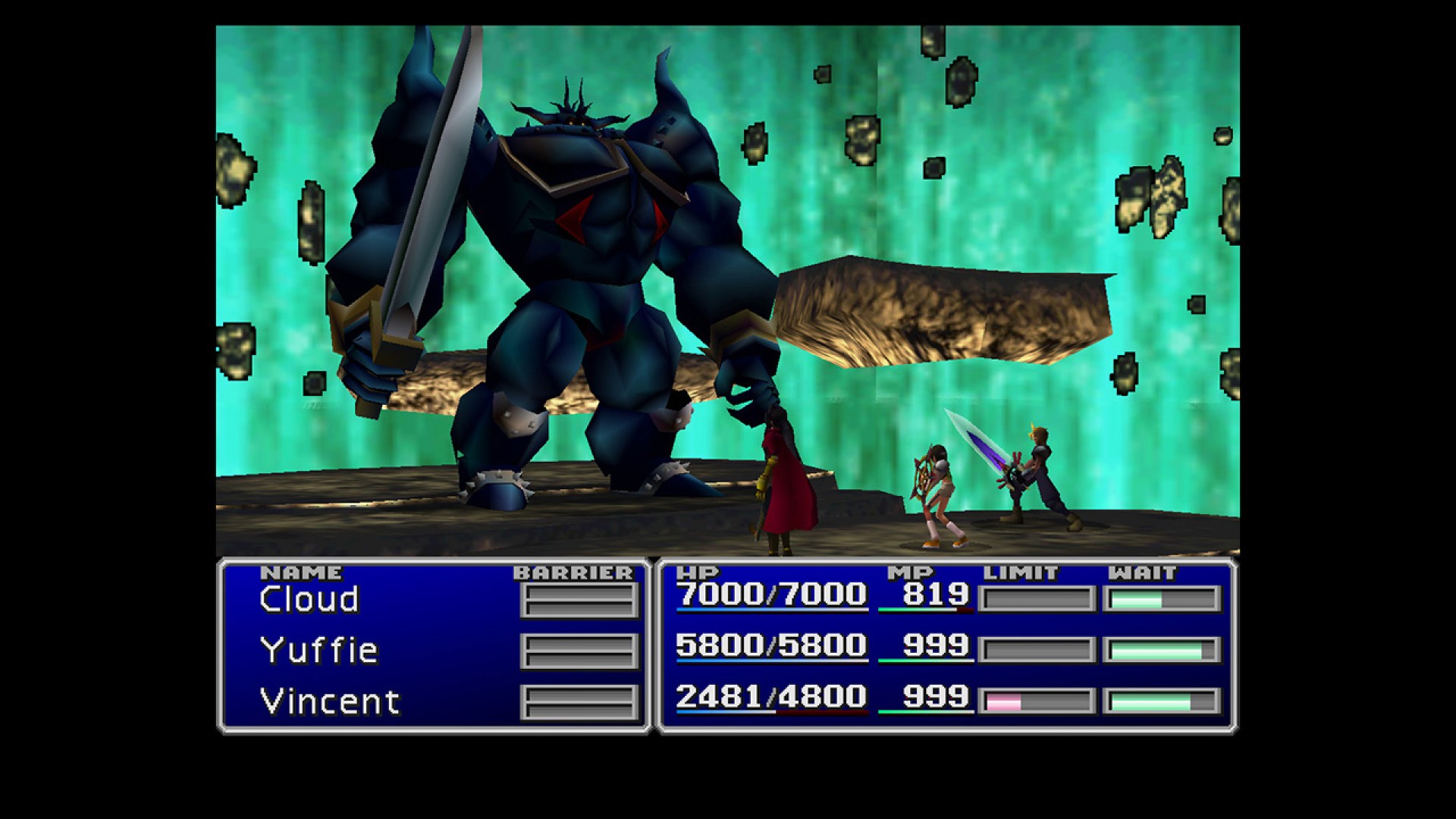
Final Fantasy VII is the game that brought JRPGs into the mainstream. At the time, no other title featured such detailed graphics and cinematic cutscenes. The high production value brought people in but it was the addictive gameplay mechanics, gripping narrative and relatable characters that kept players going until the game’s end. Characters like Cloud, Barret, Tifa, Aerith have become iconic even beyond the gaming community.
The success of Final Fantasy VII Remake is a testament to the enduring legacy of this entry. It’s an undeniable classic.
Final Fantasy VI
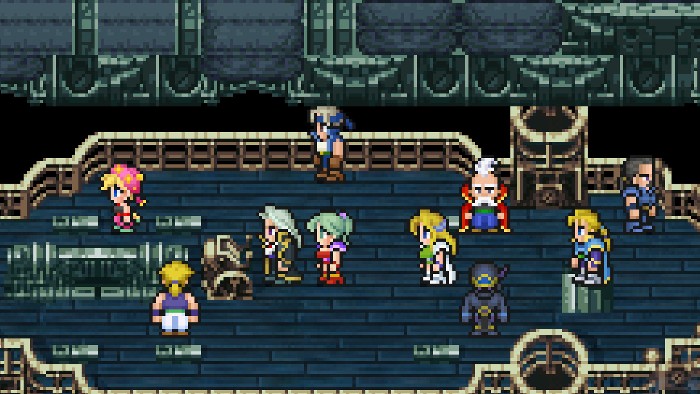
Final Fantasy VII is the most popular game in the series but there are many who say Final Fantasy VI is the stronger game.
Squaresoft managed to squeeze every ounce of power from the Super Nintendo when developing this entry. Everything, from its graphics, sound, music, characterization and plotting was meticulously crafted. The fact that you got 14 playable characters — each with captivating storylines — was unheard of at the time and is still something rarely seen today.
I could go on about Final Fantasy VI, but suffice it to say that it’s one of the pillars of the JRPG genre.
Final Fantasy X
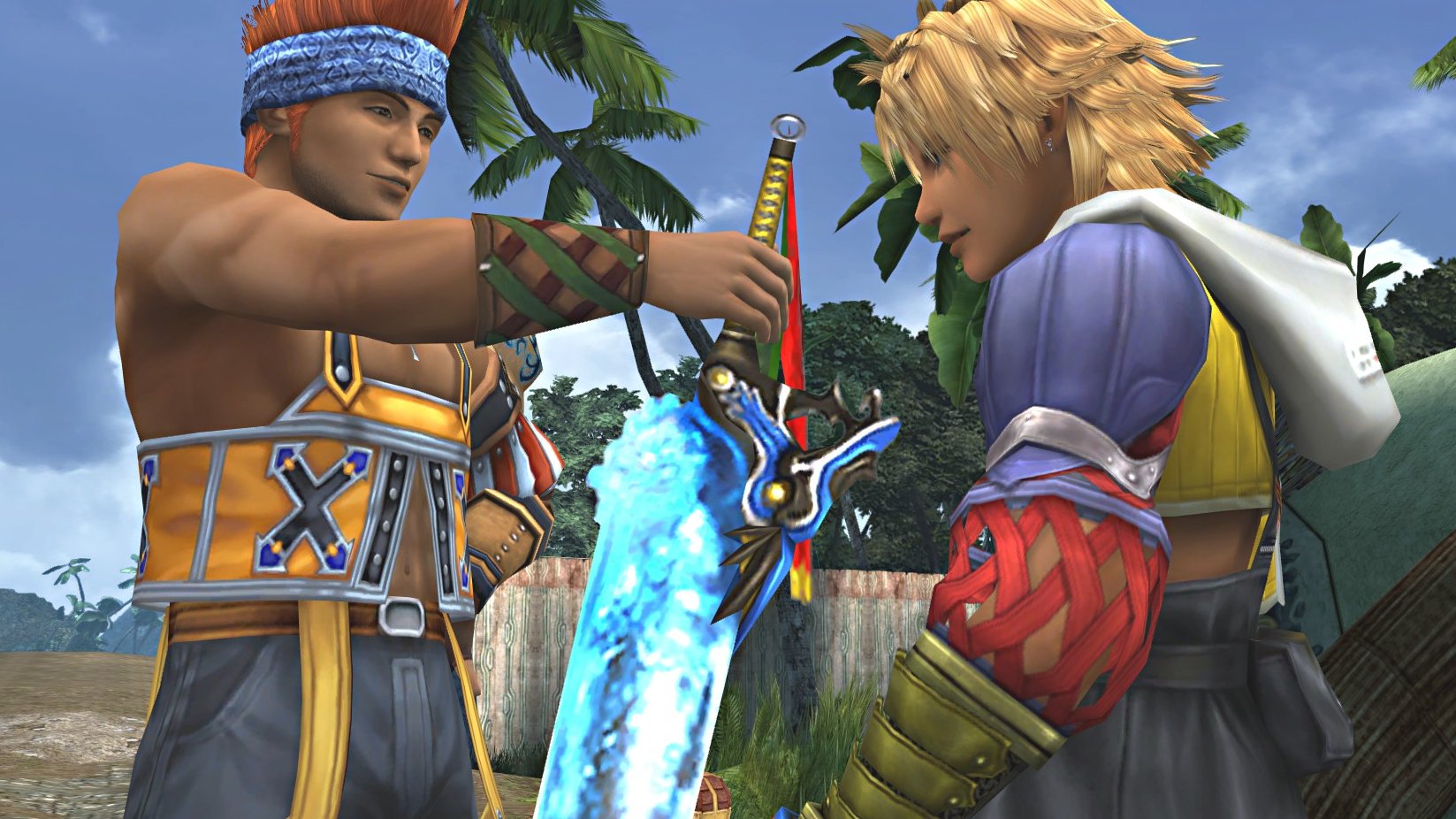
Final Fantasy X was the first of the mainline games to reach the PlayStation 2, and it delivered a graphical experience that we hadn’t yet seen from Square. The cutscenes were so detail-rich and the in-game environments so lush, that it became difficult to tell the difference between the two.
Final Fantasy X's throughline wasn’t remembered fondly by all, but it had its moments. Auron, a reserved guardian of summoner Yuna, served as a mentor to the at-times-annoying lead Tidus, and served alongside both their fathers previously.
As Tidus and Yuna grow closer together we watch as an ill-fated love story unfolds in the backdrop of the battered world of Spira. From the divisive mini-games like Blitzball to the infamous lightning challenge to get Lulu’s Celestial Weapon, Final Fantasy X is a pure embodiment of both the highs and lows of the franchise.
Final Fantasy XV

Despite looking like a K-Pop music video, Final Fantasy XV goes all-in on the story of four friends trying their best — and sometimes failing — to keep each other alive. What steals the show in Final Fantasy XV is the incredible soundtrack that fluctuates between endearing ambient sounds and intense battle music to accompany the tense combat.
Its mainline villain, Chancellor Ardyn Izunia, is one of the more forgettable big bads of the franchise due to his complicated backstory, but the final fight between him and Noctis is one for the story books. From start to finish, you’ll feel propelled down the main path just to see what happens to the crew of characters that grow on you like feathers on a Chocobo.
Final Fantasy V
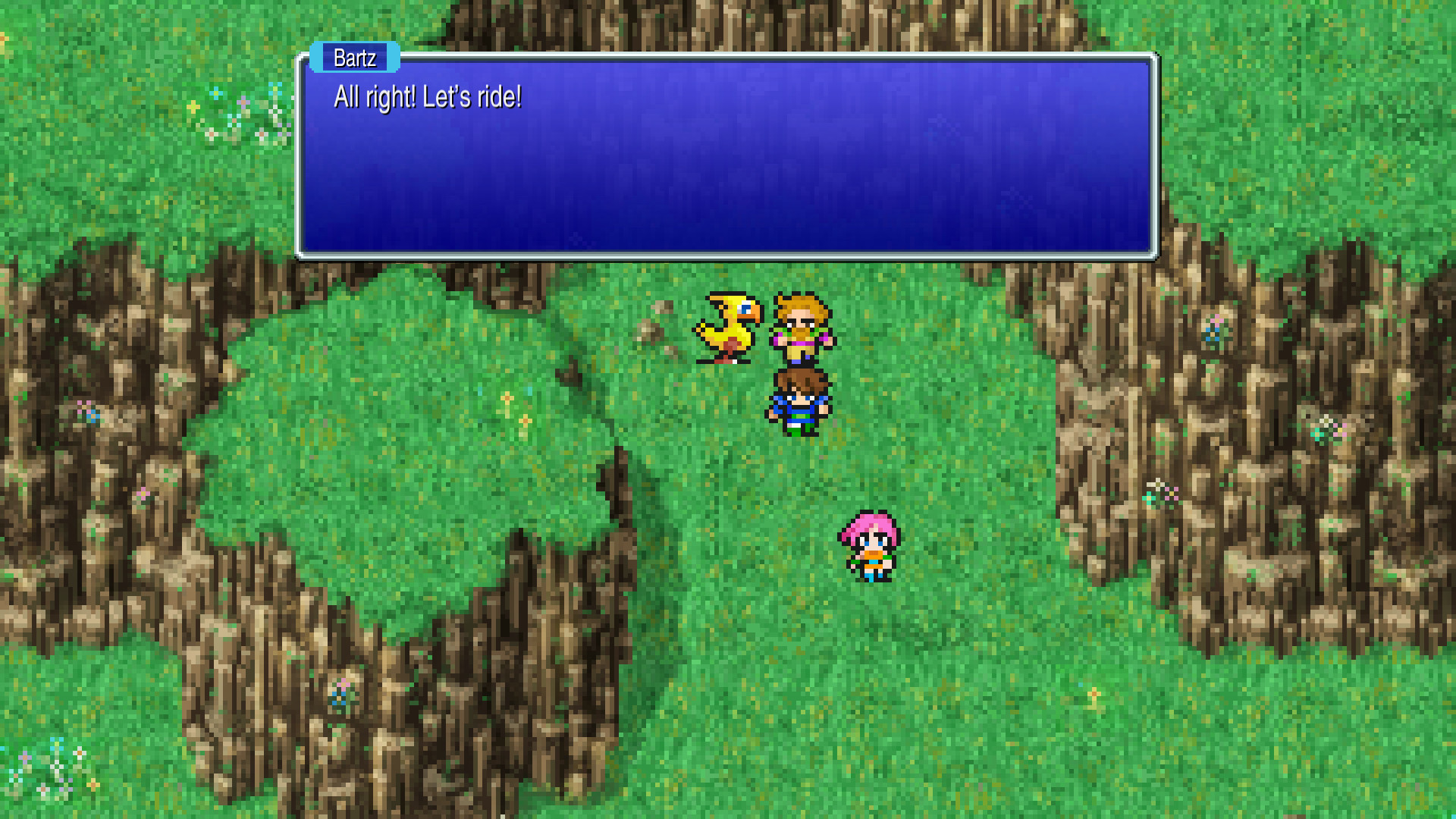
In a way, it’s fitting that Final Fantasy V is at the dead center of our rankings, as it’s arguably the quintessential Final Fantasy game. There are four Warriors of Light; there are eight crystals to protect; there are 22 Job classes to try. While the story in FFV is a little rote, the characters are suitably charming, and there are three big worlds to explore.
Where FFV really stands out, though, is in its highly customizable gameplay. Unlike earlier Final Fantasies, you can mix and match Job skills in this game. If you want a White Mage who can also wield a sword and shield, or a Knight who can heal the party with white magic, you can make it happen.
We've featured Final Fantasy V in our What We're Playing column, as the game is a joy to play and a challenge to buy.
Final Fantasy XII
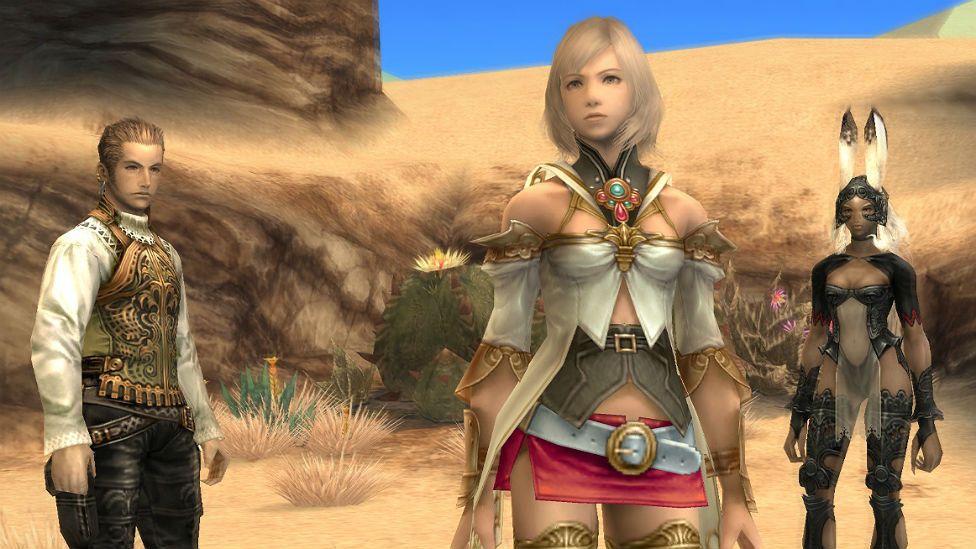
We’re not sure the world was ready for Final Fantasy XII when it came out back in 2006. Coming off the back of the maligned Final Fantasy XI MMORPG, XII attempted to return to the series’ roots with a large open world and numerous side quests — and it won several Game of the Year nods for its efforts.
The results can feel somewhat strange, especially if you had just grown accustomed to the more streamlined corridors of Final Fantasy X, but the results hold up. Set in Ivalice — an oft-recurring setting in Final Fantasy lore — we follow Vaan, an orphan who grew up in the streets of a town besieged by its two warring neighbors. It’s a politics-heavy game that’s a bit heady at parts, but stays grounded through its fun characters like Balthier and Fran, alongside Basch, Penelo, and Ashe.
If you missed it when it debuted, check out Final Fantasy XII: The Zodiac Age, a remaster of the game for PS4 that helps the characters feel more distinct by replacing the License Board with the more robust Job System.
Final Fantasy
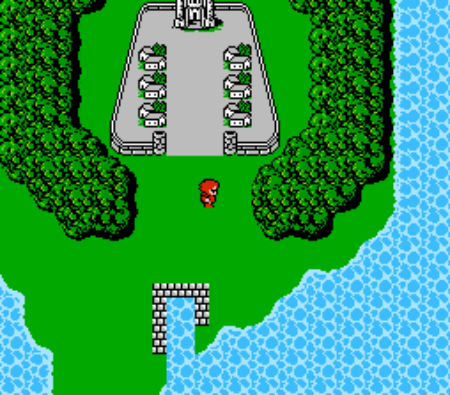
The original Final Fantasy is a trip down memory lane, one where everything seemed so black and white…and sometimes red if you were feeling adventurous. The classes may have been a bit basic back then, but the game’s ambition wasn’t.
Square, on its last legs, truly went for broke with this game, setting the standard for JRPGs to follow for years to come. That formula included leveling up, outfitting characters with better gear, grinding lower-level enemies for experiences and each lair culminating in a boss fight that would require everything you gained up to that point.
Because there were no named heroes to go by, the original game let you name your party members whatever you chose — potentially friends or family, or delightfully stupid things like ASS, Goku and, well, whatever else would fit in the 8-or-so spaces you had for a character’s name.
It doesn’t have the most immersive story or gameplay in the world by today’s standards, but the original Final Fantasy lays the groundwork for everything that comes afterwards and remains a true classic that everyone should at least try.
Final Fantasy VIII
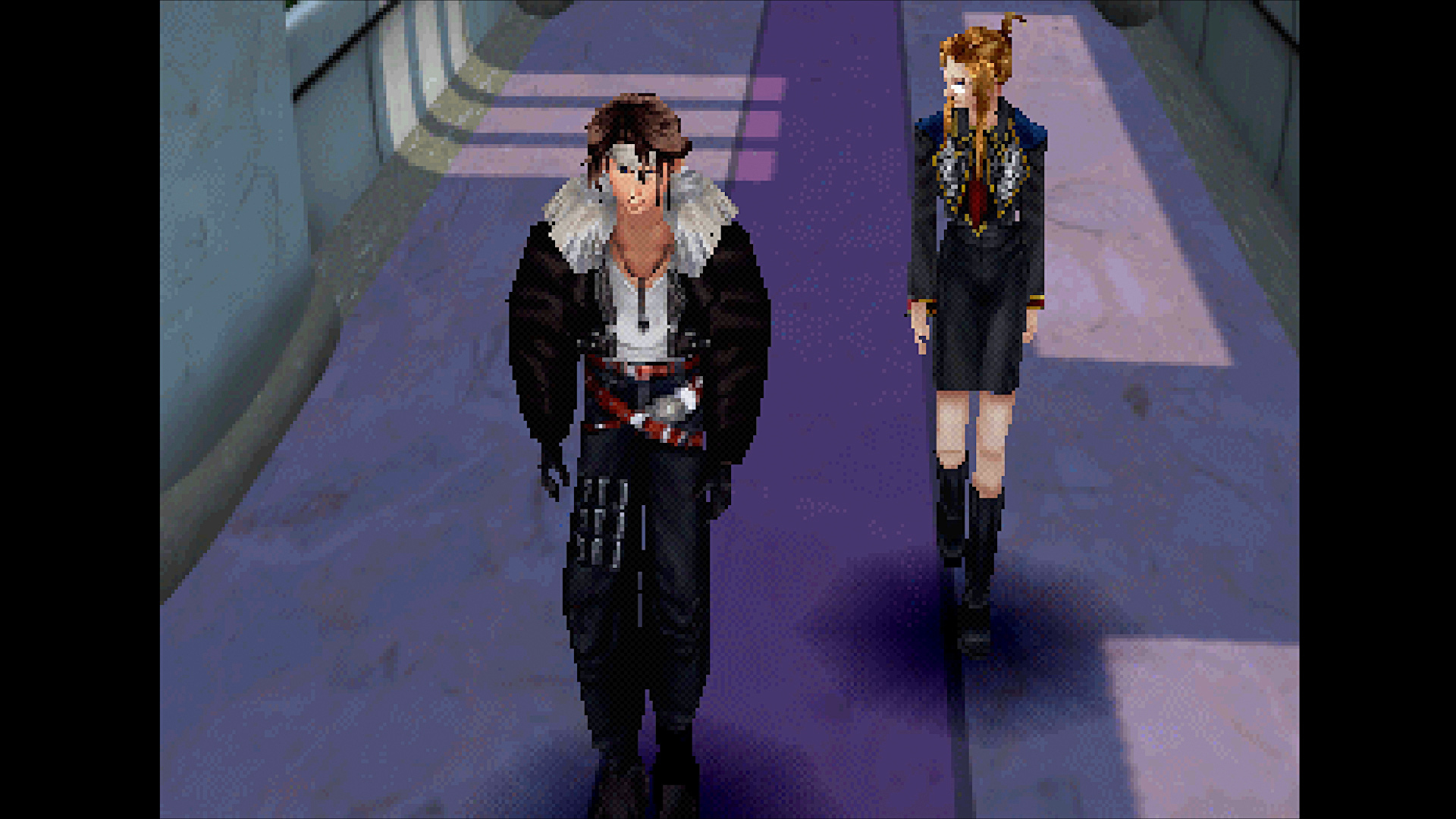
Final Fantasy VIII was a bit rugged, graphically speaking. It was more 3D than its predecessor, and yet it was developed in that Wild West era of PlayStation where graphics weren’t quite realistic.
Despite some in-game models looking a bit janky, Final Fantasy VIII remains popular because of its interesting active battle system that added a new Draw function that allowed you to steal from an enemy. Most of the time this resulted in stocking up on mundane spells, but sometimes this was the only way to get rare or hidden summons. It’s a game known for keeping you on your toes, mixing up the typical brooding male antagonist with an all-powerful sorceress.
Not every battle is a winner — as there are some very frustrating fights in this entry — but we still love it for its deeper story, compelling characters and Triple Triad, arguably the best mini-game of the entire series.
Final Fantasy III
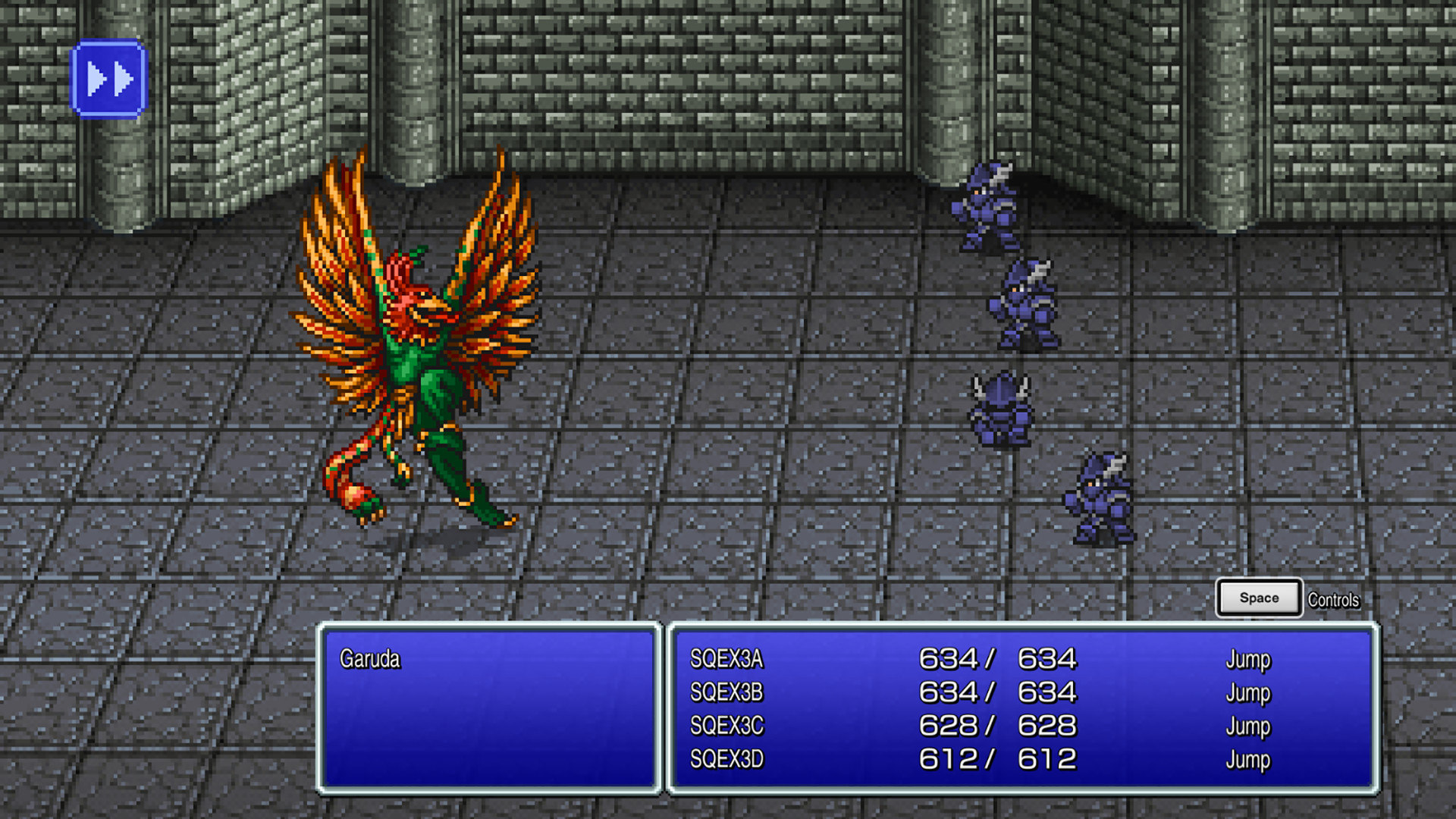
If nothing else, Final Fantasy III introduced the series’ signature Job system, which both mainline and spinoff games still employ to this day. This game, which came out for the Famicom (the Japanese NES) in 1990, let players recruit a party of four adventurers, and pit them against a fairly generic high fantasy threat.
The story in FFIII is a bit forgettable, but the gameplay made up for it. Rather than the static class system of the first game, or the open-ended character-building of the second, FFIII let players choose among 22 different “Jobs,” each of which conferred special skills. From melee-focused Warriors and Knights, to magic-wielding Red Mages and Summoners, there’s a job to suit every playstyle.
Final Fantasy XIII
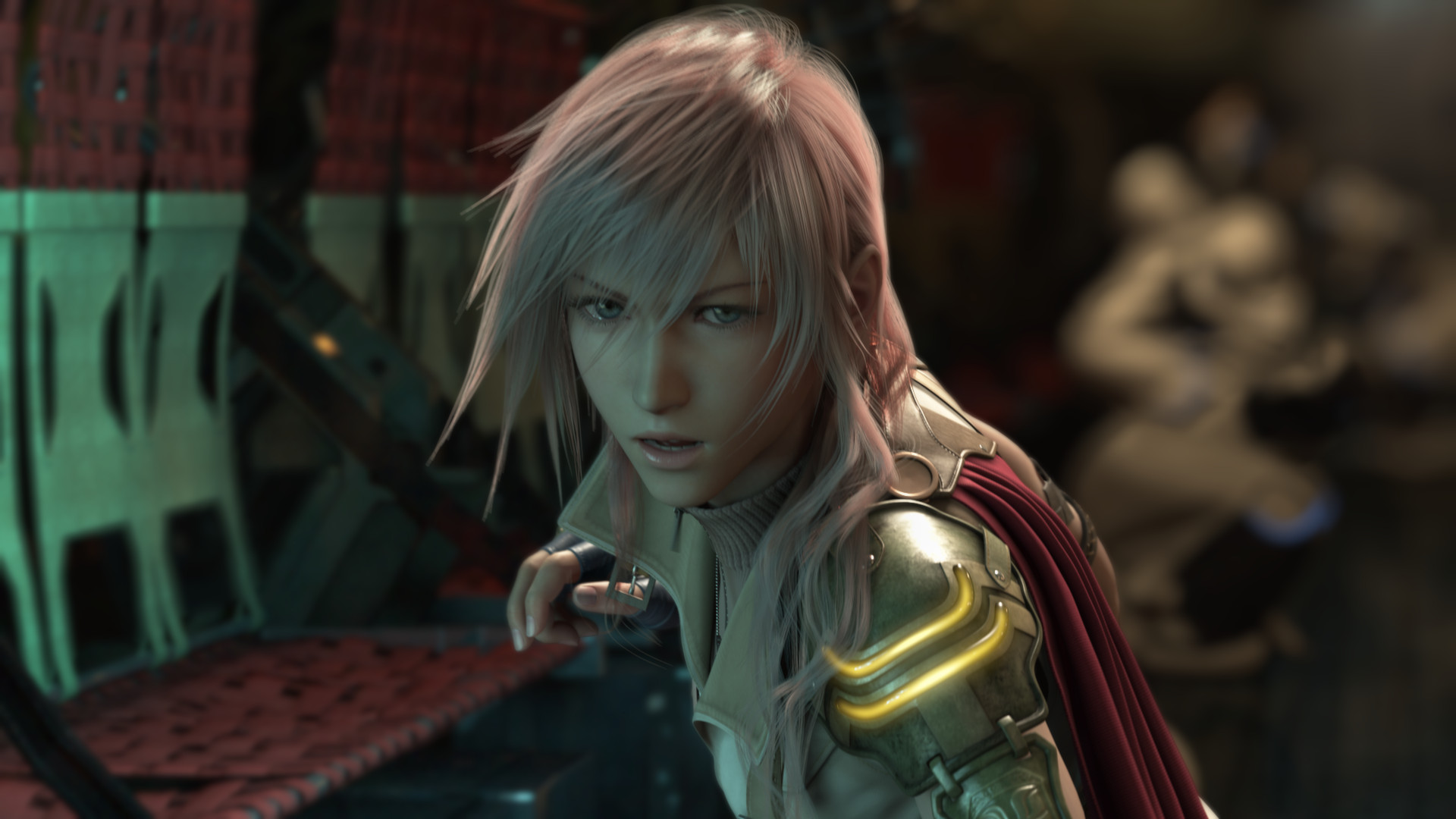
Final Fantasy XIII is one of the most contentious Final Fantasy games released in recent memory. While it featured movie-quality graphics and a stellar soundtrack, the muddled storyline, bland characters, and linear level design prevented it from being the hit Square-Enix expected. It wasn’t all a disaster, as even people who vehemently detest this game will admit to liking its fast and fluid combat system.
While the game was lambasted at launch, it would spawn two sequels. These served to confuse the already labyrinthine plot, but they at least emphasized the original’s good attributes. Final Fantasy XIII is a hard game to recommend to most people, but it’s not worth completely dismissing.
Final Fantasy II
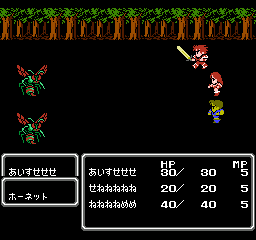
Squaresoft was quick to follow the success of the first Final Fantasy with a sequel, aptly named Final Fantasy II. Since the developers never had a sequel in mind, they decided to get a bit experimental with Final Fantasy II… perhaps too experimental for some.
Instead of experience-based levels, characters developed depending on the actions they took. Using weapons would raise your strength while using spells boosted your magic. This type of experience led to players spamming spells and attacks to artificially raise their stats.
Final Fantasy II’s story was almost a carbon copy of Star Wars: A New Hope, featuring plucky rebels against an evil empire that used a super weapon to terrorize the world. Though this entry has been criticized for its faults, it can be enjoyable so long as you in seeking a different RPG experience.
Final Fantasy XI
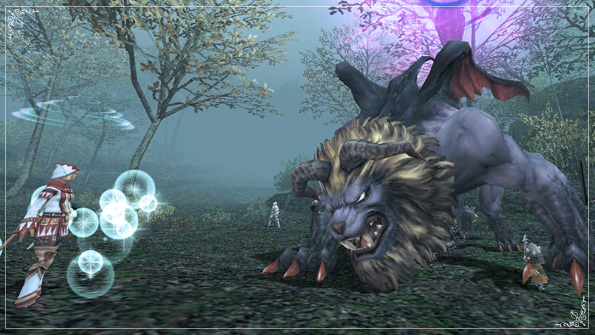
Final Fantasy XI, for all its strengths, is easily the least accessible Final Fantasy game. This massively multiplayer online game debuted in 2002, and has been running continuously since then.
Even when it came out, the gameplay was difficult and somewhat tedious, requiring lots of grinding and punishing players severely for dying. Cooperating with other players was an absolute necessity, even early on, and these days, the player base is pretty small compared to other successful MMOs.
Still, the challenging combat and extensive story both feel worthwhile, so if you can get a group together, FFXI is still worth checking out. Just be prepared to work for your fun.
In terms of future titles, Final Fantasy XVI will be PS5-exclusive for at least six months.
Tom's Guide upgrades your life by helping you decide what products to buy, finding the best deals and showing you how to get the most out of them and solving problems as they arise. Tom's Guide is here to help you accomplish your goals, find great products without the hassle, get the best deals, discover things others don’t want you to know and save time when problems arise. Visit the About Tom's Guide page for more information and to find out how we test products.
-
KevikFenrir As someone that has at least tried all 15 entries in the series, including some of the spinoffs, I don't understand how the author can claim that Final Fantasy XI is tough to get in to unless you have people to play with. In recent years the game has become as accessible as XIV by using a system called Trust, which let's the player choose non player characters to create adventuring parties with. It's no longer necessary to look for people to run main story missions with since you can build your own party, instead. That's not too say you can't, however, just that there's a lot more flexibility in deciding how to tackle content.Reply
I'll admit, sometimes the system can be a bit janky, but it's because the game is 20 years old, as previously mentioned.

